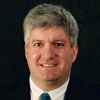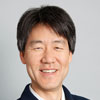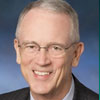February 16, 2012 - Washington, DC Overview and Agenda Photos
Future "Big Ideas" Panel
Thomas Kalil
 Thomas Kalil is currently serving as the deputy director for policy for the White House Office of Science and Technology Policy and senior advisor for science, technology and innovation for the National Economic Council. From 2001 to 2008, Mr. Kalil was Special Assistant to the Chancellor for Science and Technology at UC Berkeley. He was responsible for developing major new multi-disciplinary research and education initiatives at the intersection of information technology, nanotechnology, microsystems, and biology. He also conceived and launched a program called "Big Ideas @ Berkeley," which provides support for multidisciplinary teams of Berkeley students that are interested in addressing economic and societal challenges such as clean energy, safe drinking water, and poverty alleviation. Previously, Mr. Kalil served as the Deputy Assistant to President Clinton for Technology and Economic Policy, and the deputy director of the White House National Economic Council. He led a number of White House technology initiatives, such as the National Nanotechnology Initiative, the Next Generation Internet, bridging the digital divide, e-learning, increasing funding for long-term information technology research, making IT more accessible to people with disabilities, and addressing the growing imbalance between support for biomedical research and for the physical sciences and engineering.
Thomas Kalil is currently serving as the deputy director for policy for the White House Office of Science and Technology Policy and senior advisor for science, technology and innovation for the National Economic Council. From 2001 to 2008, Mr. Kalil was Special Assistant to the Chancellor for Science and Technology at UC Berkeley. He was responsible for developing major new multi-disciplinary research and education initiatives at the intersection of information technology, nanotechnology, microsystems, and biology. He also conceived and launched a program called "Big Ideas @ Berkeley," which provides support for multidisciplinary teams of Berkeley students that are interested in addressing economic and societal challenges such as clean energy, safe drinking water, and poverty alleviation. Previously, Mr. Kalil served as the Deputy Assistant to President Clinton for Technology and Economic Policy, and the deputy director of the White House National Economic Council. He led a number of White House technology initiatives, such as the National Nanotechnology Initiative, the Next Generation Internet, bridging the digital divide, e-learning, increasing funding for long-term information technology research, making IT more accessible to people with disabilities, and addressing the growing imbalance between support for biomedical research and for the physical sciences and engineering.
Peter Lee
 Peter Lee is a distinguished scientist and the managing director of Microsoft Research in Redmond. In this role, Dr. Lee is regularly called upon as an analyst and contributor in research, education, and policy making. Before he joined Microsoft, he held key positions in both government and academia. His most recent position was at the Defense Advanced Research Projects Agency (DARPA), where he challenged conventional Department
of Defense (DoD) approaches to computer science. Prior to joining DARPA, Peter was head of Carnegie Mellon's (CMU) nationally top-ranked computer science department and had previously served as the university's vice provost for research. At CMU, he carried out research in software reliability, program analysis, security, and language design. He is well- known for his development of techniques for enhanced software security, and has tackled problems as diverse as programming for large-scale modular robotics systems and shape analysis for C programs. Dr. Lee is a fellow of the Association for Computing Machinery (ACM) and former chair of the Board of Directors of the Computing Research Association (CRA). He is a member of the Computer Science and Telecommunications Board of the National Research Council (NRC), and was the principal investigator for the Computing Community Consortium's (CCC) Computing Innovation Fellows Program, which provided postdoctoral fellowships for top Ph.D.s in the computing field. Dr. Lee holds a Ph.D. in Computer and Communication Sciences from the University of Michigan at Ann Arbor and Bachelor's degrees in Mathematics and Computer Sciences, also from the University of Michigan at Ann Arbor.
Peter Lee is a distinguished scientist and the managing director of Microsoft Research in Redmond. In this role, Dr. Lee is regularly called upon as an analyst and contributor in research, education, and policy making. Before he joined Microsoft, he held key positions in both government and academia. His most recent position was at the Defense Advanced Research Projects Agency (DARPA), where he challenged conventional Department
of Defense (DoD) approaches to computer science. Prior to joining DARPA, Peter was head of Carnegie Mellon's (CMU) nationally top-ranked computer science department and had previously served as the university's vice provost for research. At CMU, he carried out research in software reliability, program analysis, security, and language design. He is well- known for his development of techniques for enhanced software security, and has tackled problems as diverse as programming for large-scale modular robotics systems and shape analysis for C programs. Dr. Lee is a fellow of the Association for Computing Machinery (ACM) and former chair of the Board of Directors of the Computing Research Association (CRA). He is a member of the Computer Science and Telecommunications Board of the National Research Council (NRC), and was the principal investigator for the Computing Community Consortium's (CCC) Computing Innovation Fellows Program, which provided postdoctoral fellowships for top Ph.D.s in the computing field. Dr. Lee holds a Ph.D. in Computer and Communication Sciences from the University of Michigan at Ann Arbor and Bachelor's degrees in Mathematics and Computer Sciences, also from the University of Michigan at Ann Arbor.
Elizabeth Mynatt
 Elizabeth Mynatt is a professor of Interactive Computing and the executive director of Georgia Tech's Institute for People and Technology. The Institute for People and Technology (IPaT) serves as a catalyst for research activities that pursue transformations in healthcare, media, education, and humanitarian systems by integrating advances in human-centered design, system science and engineering, policy, and management. Dr. Mynatt is an internationally recognized expert in the areas of ubiquitous computing, personal health informatics, computer-supported collaborative work and human-computer interface design. Named Top Woman Innovator in Technology by Atlanta Woman Magazine in 2005, Dr. Mynatt has created new technologies that support the independence and quality of life of older adults "aging in place," that help people manage diabetes, and that increase creative collaboration in workplaces. Dr. Mynatt is a member of the ACM SIGCHI Academy, a Sloan and Kavli research fellow, and serves on Microsoft Research's Technical Advisory Board. She is also a member of the Computing Community Consortium, an NSF-sponsored effort to engage the computing research community in envisioning more audacious research challenges. Dr. Mynatt earned her Bachelor of Science summa cum laude in computer science from North Carolina State University and her Master of Science and Ph.D. in computer science from Georgia Tech.
Elizabeth Mynatt is a professor of Interactive Computing and the executive director of Georgia Tech's Institute for People and Technology. The Institute for People and Technology (IPaT) serves as a catalyst for research activities that pursue transformations in healthcare, media, education, and humanitarian systems by integrating advances in human-centered design, system science and engineering, policy, and management. Dr. Mynatt is an internationally recognized expert in the areas of ubiquitous computing, personal health informatics, computer-supported collaborative work and human-computer interface design. Named Top Woman Innovator in Technology by Atlanta Woman Magazine in 2005, Dr. Mynatt has created new technologies that support the independence and quality of life of older adults "aging in place," that help people manage diabetes, and that increase creative collaboration in workplaces. Dr. Mynatt is a member of the ACM SIGCHI Academy, a Sloan and Kavli research fellow, and serves on Microsoft Research's Technical Advisory Board. She is also a member of the Computing Community Consortium, an NSF-sponsored effort to engage the computing research community in envisioning more audacious research challenges. Dr. Mynatt earned her Bachelor of Science summa cum laude in computer science from North Carolina State University and her Master of Science and Ph.D. in computer science from Georgia Tech.
Stefan Savage
 Stefan Savage is a professor of Computer Science and Engineering at the University of California, San Diego. He received his Ph.D. in Computer Science from the University of Washington and a B.S. in Applied History from Carnegie Mellon University. Dr. Savage's research interests lie at the intersection of distributed systems, networking, and computer security, with a current focus on both embedded security and the economics of cybercrime. He currently serves as director of UCSD's Center for Network Systems (CNS) and as co-director for the Cooperative Center for Internet Epidemiology and Defenses (CCIED), a joint effort between UCSD and the International Computer Science Institute.
Stefan Savage is a professor of Computer Science and Engineering at the University of California, San Diego. He received his Ph.D. in Computer Science from the University of Washington and a B.S. in Applied History from Carnegie Mellon University. Dr. Savage's research interests lie at the intersection of distributed systems, networking, and computer security, with a current focus on both embedded security and the economics of cybercrime. He currently serves as director of UCSD's Center for Network Systems (CNS) and as co-director for the Cooperative Center for Internet Epidemiology and Defenses (CCIED), a joint effort between UCSD and the International Computer Science Institute.
Charles Vest
 Charles Vest is president of the U.S. National Academy of Engineering and president emeritus of the Massachusetts Institute of Technology. A professor of mechanical engineering at MIT and formerly at the University of Michigan, he served on the U.S. President's Council of Advisors on Science and Technology from 1994-2008, and chaired the President's Committee on the Redesign of the Space Station and the Secretary of Energy's Task force on the Future of Science at DOE. He was a member of the Commission on the Intelligence Capabilities of the United States Regarding Weapons of Mass Destruction and the Secretary of Education's Commission on the Future of Higher Education. He was vice chair of the U.S. Council on Competitiveness
for seven years, has served on the boards of DuPont and IBM, and was awarded the 2006 National Medal of Technology by President George W. Bush and the 2011 Vannevar Bush Award from the NSF. He is the author of a book on holographic interferometry and two books on higher education.
Charles Vest is president of the U.S. National Academy of Engineering and president emeritus of the Massachusetts Institute of Technology. A professor of mechanical engineering at MIT and formerly at the University of Michigan, he served on the U.S. President's Council of Advisors on Science and Technology from 1994-2008, and chaired the President's Committee on the Redesign of the Space Station and the Secretary of Energy's Task force on the Future of Science at DOE. He was a member of the Commission on the Intelligence Capabilities of the United States Regarding Weapons of Mass Destruction and the Secretary of Education's Commission on the Future of Higher Education. He was vice chair of the U.S. Council on Competitiveness
for seven years, has served on the boards of DuPont and IBM, and was awarded the 2006 National Medal of Technology by President George W. Bush and the 2011 Vannevar Bush Award from the NSF. He is the author of a book on holographic interferometry and two books on higher education.
The materials on this webpage, including speakers' slides and videos, are copyright the author(s).
Permission is granted for non-commercial use with credit to the author(s) and the Computing Community Consortium (CCC).


